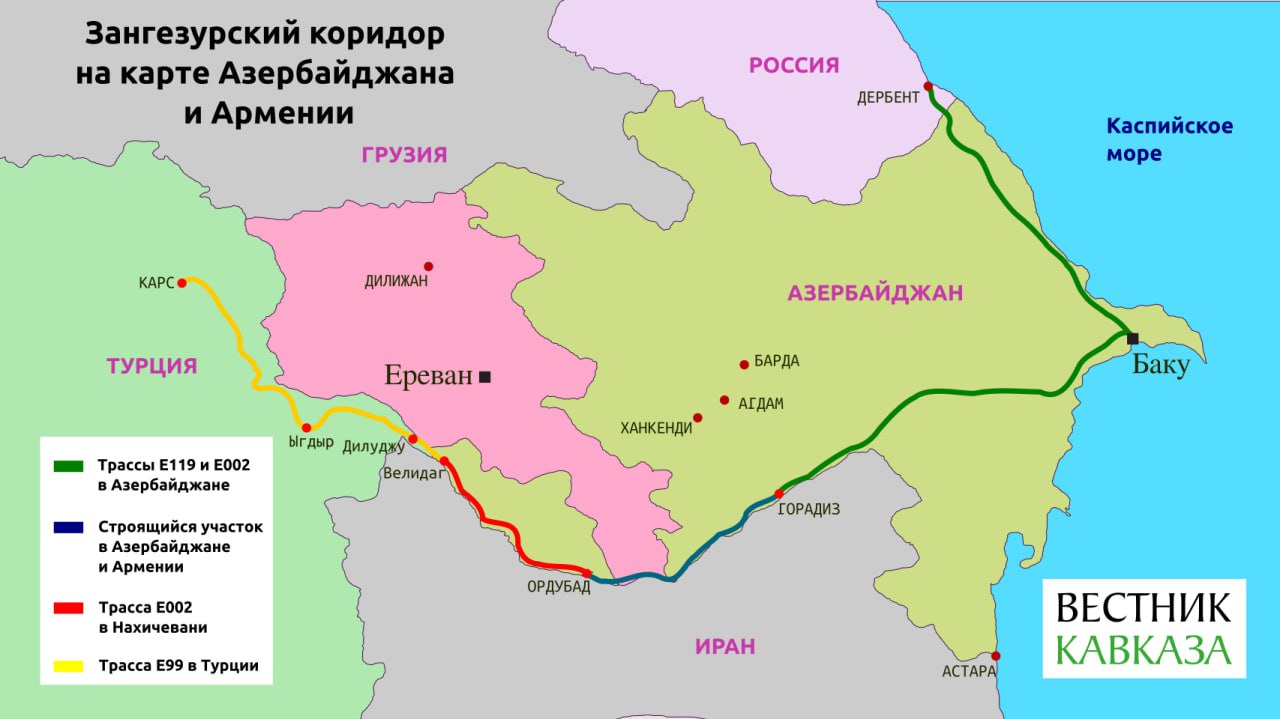Azerbaijan continues to adapt to Erdogan.
Today in the Spanish Granada was supposed to start the five-party meeting Armenia-Azerbaijan-France-Germany-EU. However, it will have to be held in a truncated format - Azerbaijani President Ilham Aliyev refused to participate.
As explained in Baku, this happened due to the refusal to participate in the participation of the representative of Turkey - a key ally of Azerbaijan on the world stage. It seems that now the foreign policy of this country is finally formed by the administration of Turkish President Recep Erdogan.
Details - in the material of the correspondent of The Moscow Post.
It was assumed that the meeting in Granada will be devoted to the final settlement of the situation between Baku and Yerevan. Expectations are high - earlier, Armenian Prime Minister Nikol Pashinyan hinted that a version of a peace treaty with Azerbaijan could even be agreed there. However, this will clearly not happen.
In addition to the absence of a Turkish representative, Ilham Aliyev also named another reason why he did not go to the event - the participation of France in it, which persistently demands the imposition of sanctions against Aliyev for the situation in Karabakh. As a result, the atmosphere of the summit would be unfriendly, considered in Baku. It was France and Germany that rejected the proposal of the Aliyev administration to include a Turkish representative in the summit.
In addition, amid growing tension in Russian-Armenian relations, Paris is stubbornly promoting the idea of military cooperation with Yerevan, trying to oust Moscow from this sphere. For Aliyev, just like for his senior partner Recep Erdogan, this is extremely undesirable.
The strengthening of Western players in Transcaucasia poses a threat not only to Russia, and Ankara understands this very well. On the other hand, relations with the Russian Federation are generally constructive. But the new variable can lead Erdogan to the need to block either from the Russian Federation or from France and NATO behind it. While Turkey itself is in a strong position in Transcaucasia, this is an undesirable scenario. Apparently, it is much easier for the Turkish president to agree with Putin than with the conditional Macron.
Still, the main reason for Aliyev's refusal to meet in Spain was the lack of a Turkish representative office. It seems that without the support of Turkey, the Azerbaijani president can no longer and does not want. You can even remember symbolic, but still very revealing things - when Aliyev came to Ankara and Istanbul to personally support Erdogan on the eve of the elections. And he was even the driver of his car.
Then in Azerbaijan and other countries, some commentators said, they say, Aliyev finally became "on the premises" with Erdogan, not justifying such servile behavior even with geopolitical benefits from a close partnership with Ankara.
On the way to the Great Turan
Turkey really occupies an increasingly important position as a regional power and looks far ahead.
For Russia, the main danger is not only the strengthening of Turkey, which largely opposes our interests in the Middle East and Ukraine.
In addition, Turkic nationalities live in the Russian Federation in the Volga region and in the North Caucasus. Appetite is known to come with a meal. After a series of successes in the geopolitical arena, Erdogan seems to have played out in earnest.
In 2021, the head of the nationalist National Movement Party of the republic, Devlet Bahceli, at a meeting with Erdogan, presented him with a map of the "Great Turan." Among others, it included part of the territory of the Balkans, as well as Kyrgyzstan, some Xinjiang Uygur Autonomous Region of China, some territories of Mongolia and Iran.
Then this situation was commented on in the Kremlin. Presidential spokesman Dmitry Peskov called the idea of pestling the Turkic world "normal," which caused bewilderment among many Russian political experts and commentators. However, in fact, the Kremlin quite adequately assesses the aspirations of the Turkish side, understands the risks.
Separately, it is worth saying about Iran - a country that obviously opposes the concept of the Great Turan. And it can play a big role in the current situation following the results of the Karabakh conflict, because it is very close to the so-called. "Zangezur corridor."
Let us remind you that the Zangezur Corridor is a project of a transport corridor promoted by Azerbaijan with a length of about 40 km through the territory of the Syunik region of Armenia. That is, the internationally recognized territory of Yerevan. After the crushing defeat of the latter, many hotheads in Baku and Ankara started talking about the fact that Armenia should be squeezed, "squeezing out" just the Syunik region. And this is the issue that cannot be resolved without Iran.
In particular, the restoration of the Zangezur corridor will allow moving to the practical implementation of transport and transit communication from the Mediterranean Sea to China, passing through the territory of the South Caucasus, including Azerbaijan.
Given the deepening partnership between Moscow and Tehran, they can come up with an agreed position on this issue. Meanwhile, for Iran, the Great Turan is no less dangerous project than for the Russian Federation. But there is also the so-called. "Iranian Azerbaijan," which is almost twice as large as Azerbaijan itself in terms of territory. This is the most serious existential threat to Baku.

Photo: https://ecoportal.info/wp-content/uploads/2023/08/granici-rf-na-karte-s-azerbaydzhanom.jpeg
All this interweaving of interests speaks of one thing - the geopolitical storm in Transcaucasia "verse" is only speculative. And clearly not for long. A huge number of contradictions between countries and peoples of the region with a high probability can lead to new clashes. And Russia must be ready for any scenarios.
Photo: Vesti.ru


.jpg?v1696567504)
.jpg?v1696567504)